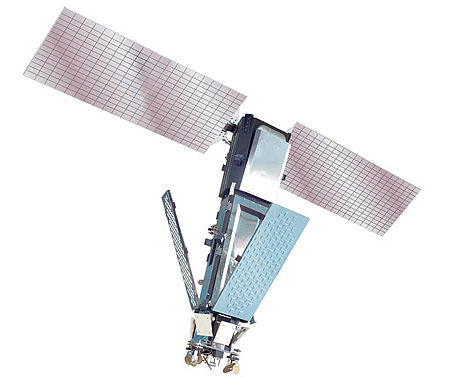 There’s a great in-depth article in the Iridium satellite network at TG Daily that is worth a read. When I worked in Boston back in 1997, an Iridium executive had come round to pitch the service, and made a compelling case for the technology and wow factor. Two years later it was bankrupt. the business model just wasn’t right for a consumer service:
There’s a great in-depth article in the Iridium satellite network at TG Daily that is worth a read. When I worked in Boston back in 1997, an Iridium executive had come round to pitch the service, and made a compelling case for the technology and wow factor. Two years later it was bankrupt. the business model just wasn’t right for a consumer service:
Analysts speculated back then that Iridium would need about 1 million customers to reach a break even. The estimated cost just to maintain the satellite network was about $540 million per year. Despite the hype, Iridium saw just a lukewarm feedback from customers: Just 3000 customers subscribed to the service in 1998. By the end of March, the customer base was just 10,300 and by the end of June just about 15,000. Still, especially market research firms fueled the hype around the company: Dataquest, for example, estimated in early 1999 that global satellite phone services would be able to attract about 10 million subscribers by 2003. Consider calling rates between $7 and $10 per minute and handset prices of more than $3000 and you can easily imagine that this was at least a $1 billion per month industry, if Dataquest was right. As we know today, they were wrong.
What was ignored at the time was the fact that Motorola had borrowed lots of money to build Iridium’s satellite network (the final price tag was reportedly more than $5 billion). The staggering cost to build and maintain the network as well as the failure to attract enough customers pushed Iridium’s quarterly losses above the half-a-billion-dollar mark by Q1 1999 and eventually forced the company to file for Chapter 11: Less than a year after the official launch of the service, Iridium defaulted on a $1.5 billion loan in August 1999.
I was under the impression that the network had been dismantled and the satellites abandoned. Instead, it had been bought out for pennies on the dollar and the business model completely revamped to focus on industry and military customers rather than the mobile consumer market. There still is no network quite like it, even though it’s based on technology that’s already decades old.
3 responses to “Iridium reborn”
It’s not entirely correct to say that there’s no network like the Iridium. In a sense you are correct, there is no network which employs an inter-satellite relay in LEO and thus achieves a global coverage with low latency.
However, Globalstar gives you almost the same capability with a far lower cost, which is why I happen to know people who are Globalstar subscribers. At least one of them is a hiker, travelling inside the CONUS. If Globalstar weren’t crippled by a horrible screw-up of Boeing-made satellites having much limited lifespan, we’d be talking about a shining commercial success. It’s a network way ahead of Iridium in handset size and price. Its only downside is that it does not cover the areas far from base stations, e.g. swaths of South Pacific.
Fortunately, oceangoing ships have enough space to accomodate terminals for GEO based systems, such as Inmarsat. Inmarsat, of course, is quite unlike Globalstar and Iridium in that you cannot quite have an Inmarsat phone in your pocket, but it’s a commercial success.
Russians struggled to match Globalstar and Iridium with Gonets. For some odd reason, Gonets is worst of all worlds: its antenna is too big for a handset, yet it relies on an expensive constellation in LEO. National pride, however, compells them to continue with Gonets. Eventually it can be made of match at least the capabilities of Globalstar, if the flow of petrodollars continues.
Woops, I was utterly wrong about the handset size between Iridium and Globalstar. Both are small. I’ve never seen the small Iridium handset, but their website offers one.
P.S. God Damn Flash.
I could be mistaken since I avent been shopping for a satphone recently, but i was under the impression that globalstar was primarily limited to the US market. The advantage of Iridium is truly global coverage, no matter where you are, irrespective of the base stations (which are just pbx gateways).